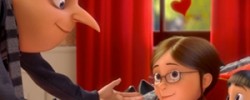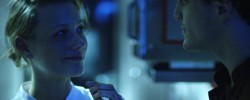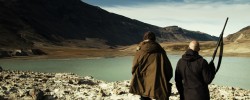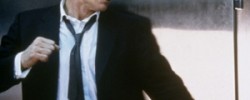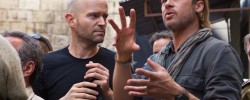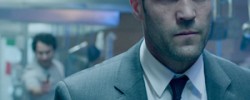
A Question of Solace: A Marc Forster Retrospective

Editor’s Notes: Marc Forster’s World War Z is now out in wide theatrical release. Read our review of the film here.
In 1981, a 12 year old Marc Forster sat down to watch Apocalypse Now -it was the first film he’d ever seen. Being brought up in the rural Swiss town of Davos, the young master Forster had almost no access to the kind of cinematic delights we now so often take for granted -yet less than ten years later he found himself studying film at NYU before moving out to Los Angeles to plug his trade. Since then, he has become one of the more divisive and consistently original directors on the Hollywood circuit –a man whose often grand visions are only exceeded by the sheer variety of his project choice.
Forster’s first feature-length film, 2000’s Everything Put Together –a far from cheery tale about childbirth and the legacy left by a loved one’s death- was a relative success considering its tiny 500,000 dollar budget , and warranted a nomination for the Grand Jury Prize at Sundance as well as a shout-out at the Independent Spirit Awards. It was certainly a quite the beginning for a man who would be directing the follow-up to Casino Royale before the decade was out.
But it was Monster’s Ball that first really catapulted Forster into the public eye. Boasting a rather impressive cast (Everyone from Billy Bob Thornton to Mos Def got in on the act) - and the kind of southern-fried visuals that could only have come out of the former confederacy- Forster finally had a big enough project to really sink his teeth in. Both Thornton and an Oscar-toting Halle Berry’s led this racially charged death row drama to both critical, and relative commercial success –suddenly Marc Forster was a big name in Tinseltown.

Never one to take an expected turn, Forster turned down the opportunity to helm both Brokeback Mountain and Harry Potter and the Prisoner of Azkaban, instead taking on Finding Neverland- the film followed J M Barrie (as played by an Academy Award Nominated Johnny Depp) and the inspiration for his writing of Peter Pan. The film was equally notable for Forster picking up the first significant directorial nod of his career (a BAFTA nomination), his quiet and non-intrusive style finally garnering some real recognition.
Unfortunately, the utter critical and financial turkey that was Stay would be the next film to grace the Forster canon. Despite an impressive cast that boasted –among others- Ewan McGregor and Ryan Gosling -as well as the kind of art-house thriller foundations that Lynchians and Nolanites have been lapping up for decades- the film failed to gross even a fraction of its original budget. The general consensus was that the more interesting aspects of the film were near wholly undermined by a muddled plot and performances wooden enough to build a log cabin–the man from Davos had his first true flop.
It was fortunate then, that he would follow Stay with arguably his best and most grossly underrated work. 2006’s Stranger than Fiction was a beautifully understated comedy-drama about an office drone who wakes up to discover a voice in his head narrating his every move. The script blended Kaufman-esque meta-cinema with a whimsical approach -the whole affair being complimented by some lovely visual touches and one of the most disarmingly endearing performances of Will Ferrell’s career. The film proved a modest commercial success, whilst suckering in many a cinema-goer with brilliant writing and buckets of charm.
Forster would have struggled to take a bigger step away from the whimsy of Stranger than Fiction than with his next project –an adaptation of Khaled Hosseini’s harrowing novel, The Kite Runner. A production defined as much by its controversy as the quality of its finished article, The Kite Runner still proved to be a solid box office success -as well as picking up a BAFTA nomination for Best Foreign Language Film along the way.
Helming his first truly big budget production, Forster took up the James Bond mantel with 2008’s Quantum of Solace. The film, in nigh on every aspect, proved to be an utter mess -scripted during the fallout of the Hollywood writers’ strikes, Quantum took nothing from the Fleming short story apart from its name. This particular Bond outing proved as dull as it was muddled, on the back of the stylish and brilliant reboot that was Casino Royale, the man from MI6 was this time fighting a baddie who’s diabolical scheme was to steal lots of water –an underwhelming concept and a disappointing execution to say the least.
The recovery from the cries of disappointment that met Quantum of Solace arrived in the form of Machine Gun Preacher- a film that’s existence was justified by its name alone, even if the end product was more than a bit of a let-down. The semi-autobiographical tale of a biker-turned-born-again-Christian fighting the LRA in Sudan featured Gerard Butler doing little more than going through the motions –plus a plot that utterly ignored any complexity the central antagonist might have held- and was all but ignored by both domestic and far-flung audiences alike.
Forster’s latest effort, the massively budgeted zombie epic, World War Z, is currently undergoing release and has thus far polarised opinion due to its uneven plotting and some wild deviations from the source material. However, it arguably marks the career peak of a man who’s quietly managed to wend his way to the top of the Hollywood pile over the last 15 years. Forster is far from outspoken -and he certainly doesn’t seek the limelight- but through a combination of drive and ingenuity he’s managed to make himself a career as one of the most variable and original A-list directors around. He may not be as consistent as some would prefer, but you could never accuse him of merely ploughing a furrow –and the loss of such a bold cinematic mind as his would prove a blow to any honest and discerning movie-goer, long may he continue.
Related Posts
Dominic Mill
Latest posts by Dominic Mill (see all)
- Review: I’m So Excited (2013) - July 1, 2013
- New to Blu-ray & DVD: The Call, The Incredible Burt Wonderstone, and Phantom - June 28, 2013
- A Question of Solace: A Marc Forster Retrospective - June 22, 2013













